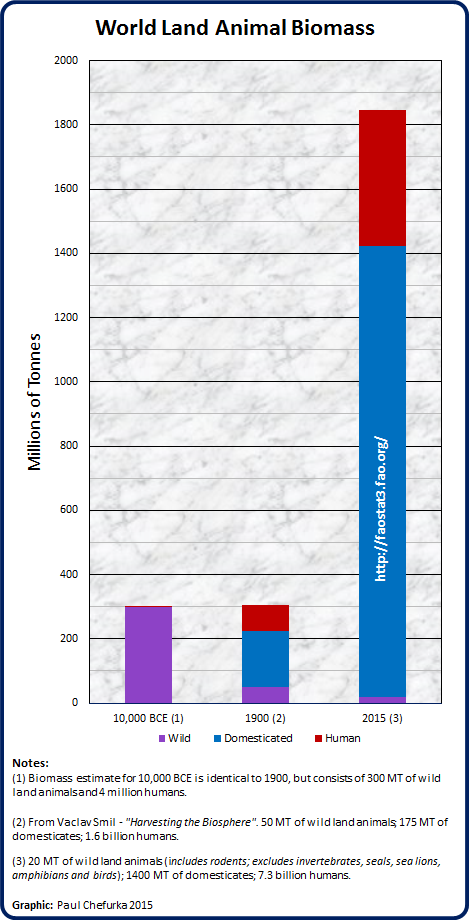General Discussion
Related: Editorials & Other Articles, Issue Forums, Alliance Forums, Region ForumsThe Insect Apocalypse Is Here What does it mean for the rest of life on Earth? NYT
New York Times
Brooke Jarvis
Nov. 27, 2018
The current worldwide loss of biodiversity is popularly known as the sixth extinction: the sixth time in world history that a large number of species have disappeared in unusually rapid succession, caused this time not by asteroids or ice ages but by humans. When we think about losing biodiversity, we tend to think of the last northern white rhinos protected by armed guards, of polar bears on dwindling ice floes. Extinction is a visceral tragedy, universally understood: There is no coming back from it. The guilt of letting a unique species vanish is eternal.
But extinction is not the only tragedy through which we’re living. What about the species that still exist, but as a shadow of what they once were? In “The Once and Future World,” the journalist J.B. MacKinnon cites records from recent centuries that hint at what has only just been lost: “In the North Atlantic, a school of cod stalls a tall ship in midocean; off Sydney, Australia, a ship’s captain sails from noon until sunset through pods of sperm whales as far as the eye can see. ... Pacific pioneers complain to the authorities that splashing salmon threaten to swamp their canoes.” There were reports of lions in the south of France, walruses at the mouth of the Thames, flocks of birds that took three days to fly overhead, as many as 100 blue whales in the Southern Ocean for every one that’s there now. “These are not sights from some ancient age of fire and ice,” MacKinnon writes. “We are talking about things seen by human eyes, recalled in human memory.”
What we’re losing is not just the diversity part of biodiversity, but the bio part: life in sheer quantity. While I was writing this article, scientists learned that the world’s largest king penguin colony shrank by 88 percent in 35 years, that more than 97 percent of the bluefin tuna that once lived in the ocean are gone. The number of Sophie the Giraffe toys sold in France in a single year is nine times the number of all the giraffes that still live in Africa.
https://www.nytimes.com/2018/11/27/magazine/insect-apocalypse.html
I can’t do this article justice. Read the whole thing and continue the fight to save our lives and our earth’s precious and fellow passengers.
Cattledog
(5,914 posts)bronxiteforever
(9,287 posts)I have a noticed a drop in bee and butterfly population in my yard.
snort
(2,334 posts)for scrubbing insect laden windshields. They were a must 30 years ago. Not anymore.
anarch
(6,535 posts)Kinda covers a lot of how I feel about humanity's current predicament:
“It feels like we’ve dropped the ball in some giant collective way.”
Yeah, it really does.
librechik
(30,674 posts)learning to like roachburgers.
jgmiller
(394 posts)Earth will take care of itself, it will do this by killing off the problem which is humans. Unfortunately like any disease other healthy organisms will die too but in the end long after humans and lots of other species are gone earth will be healthy and start again.
liberaltrucker
(9,129 posts)"The planet is just fine. WE'RE fucked".
Blue_true
(31,261 posts)Whether post-human intelligent species will figure out how to not screw things up by studying our fossils?
snort
(2,334 posts)The future leader of the World will be a tiny-handed mushroom.
Blue_true
(31,261 posts)The_jackalope
(1,660 posts)
According to WWF, wild animal numbers have declined by more than half since 1970.
https://www.theguardian.com/environment/2014/sep/29/earth-lost-50-wildlife-in-40-years-wwf